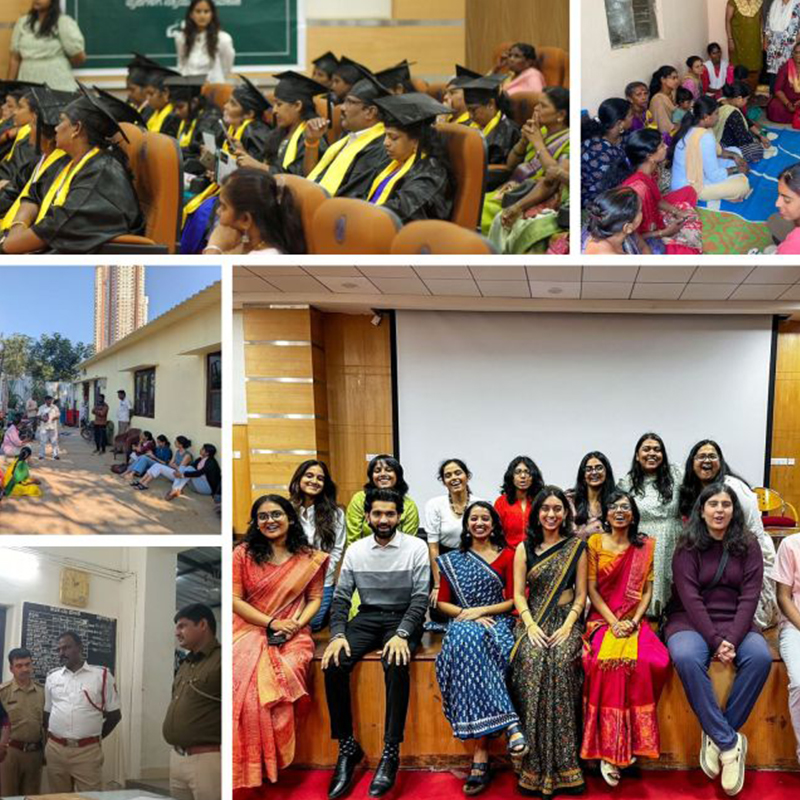 Donate
Donate

On June 22nd in Bangalore, a group of women and men stood tall in caps and gowns, flanked by proud families. But this wasn’t a typical graduation. These were India’s newest “Nyaaya Mitras”—grassroots paralegals bringing justice where the system too often stays silent.
Leading this quiet transformation is Vibha Nadig, Founder-Director of OutLawed India (OLI) and a 2024 INK Fellow. Through OLI, Vibha is reimagining legal access—not in courtrooms, but in everyday life.
OLI’s model is simple yet radically effective: train and deploy paralegals from underserved communities—domestic and factory workers, transgender individuals—so they can bridge the gap between the law and the people it’s meant to serve. These Nyaaya Mitras assist with basic legal needs: filing FIRs, applying for Aadhaar, sending legal notices, securing protection orders, and more—often making the difference between invisibility and recognition.
“We’re not looking to create lawyers,” Vibha says. “We’re creating community champions—people who offer not just information, but time, trust, and skin in the game.”
Justice, Measured in Lives Changed
Since founding, OLI has trained 40 paralegals handling 100+ live cases, impacting 3,500+ people through casework and outreach. This year’s cohort spans 22 Bangalore neighborhoods, supported by Ananya Charitable Trust and Vathsalya. Dozens of cases have already been resolved—from wage theft to domestic abuse. The event also recognized the work of Nyaaya Mitras: Mercy was honored for handling the most cases (domestic violence, property disputes) and Mamatha for supporting a complex POCSO child marriage case (even accompanying them to the police station.)
The Karnataka State Legal Services Authority has taken note. At the event, Secretary Sri Shashidhara Shetty called for the formal empanelment of the Nyaaya Mitras.
What It Means to Serve
Vibha started OLI in law school, driven by personal experience of injustice. Scaling the model hasn’t been easy—funding is unpredictable, and the emotional toll of frontline work is real.
The belief that to do meaningful work, you must run from pillar to post, always under-resourced and overextended, is unsustainable. “Purpose-driven work deserves balance, dignity, and financial stability,” Vibha notes. “We must shift this narrative and make it easier to access resources. When you don’t have to choose between impact and stability, more changemakers will feel empowered to join the work that urgently needs doing.”
With two cohorts trained and growing demand from across India, OLI is launching new programs in districts across Karnataka. It has also developed an AI-based Telegram bot to assist paralegals manage cases. As Vibha says, “We’ve seen what’s possible when justice is made local, personal, and collective.”
Watch Vibha’s INKTalk https://lnkd.in/gU7yM2FY
Subscribe to our newsletters for latest updates, inspiring talks, and access to our vibrant community.